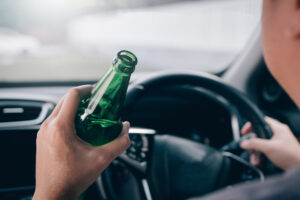Drink Driving Offence
Drink driving is a serious offence under UK laws. If you are charged with a drink-driving offence, you may face a broad range of penalties. These include fines, potential imprisonment, as well as the risk of losing your driving privileges due to disqualification.
Call us on 0207 100 2525 for immediate help & assistance with your situation.
We’re here to help you in person, via the phone or online.
Drink Driving Offence Solicitors
Several factors affect a drink driving case. A court will consider all these factors when sentencing you for the offence.
It is critically important that you consult reliable drink driving offence solicitors if you are facing this charge. Qualified solicitors will help you weigh your legal options, see if there are any potential defences to the charge, and work with you through the legal proceedings.
Here at the London-based Adam Bernard’s, our drink driving offence lawyers have an extensive experience in this legal area. You can consult our motoring offence solicitors to discuss your case in detail and choose the best option for you.
Drink Driving Laws in the UK
The laws governing drink driving offences in the UK are specified in the Road Traffic Act 1988, Section 5. As per this section, drink driving offences are categorized into two types:
Drive/Attempt to Drive: This pertains to when your blood alcohol level is above the limit and you are actively driving or trying to drive a vehicle. Maximum penalties apply in this case.
In Charge: You may also be charged if your blood alcohol level is above the limit and you are not driving or trying to drive. Even if you are simply in charge of the vehicle, you will have committed the offence. However, the penalties in this case are less severe.
Excess alcohol is defined as the following:
Blood Test: If you have 80 milligrams or more of alcohol in 100 millilitres of blood, this qualifies as excess alcohol.
Breath Test: If you have 35 micrograms or more of alcohol in 100 millilitres of breath, you have excess alcohol.
Urine Test: If your urine contains 107 milligrams or more of alcohol per 100 millilitres of urine, you have excess alcohol.
Other laws may also come into play when determining the outcome of your drink driving case. Our drink driving offence solicitors can help you understand these laws and make an informed decision.
Penalties for Drink Driving
As noted above, two tiers of penalties drink driving offences.
If you have been charged with driving or attempting to drive with excess alcohol, you face a stiffer set of penalties. These include:
An unlimited fine
Up to six months imprisonment
Driving disqualification for at least 12 months
If your offence qualifies as Excess Alcohol (In Charge), you may face the following penalties:
A fine of up to £2500
A prison sentence of up to 3 months
A possible disqualification or penalty points on your license
The actual penalties for a drink driving offence depend greatly on various aggravating and mitigating factors. The presence of aggravating factors will prompt a court to pronounce stiffer penalties.
Our drink driving offence lawyers can help you determine whether any mitigating or aggravating factors apply to your case. Here is a look at these factors.
Aggravating and Mitigating Factors
Aggravating factors add to the severity of your drink driving offence. The court may consider these and impose stiffer penalties. Possible aggravating factors include:
A previous conviction: If you have been previously charged with a drink driving offence, this qualifies as an aggravating factor. In most cases, a previous conviction for a similar offence within the last 10 years can lead to a driving disqualification period of at least 3 years.
Dangerous driving: If you are also found guilty of driving at an unacceptable standard, this can also lead to a more severe set of penalties.
Endangering other persons: Your drink driving can endanger other persons if you were carrying passengers at the time of the offence, or if you were driving in a high-traffic area at the time. If you also cause an accident, you can face life imprisonment, an unlimited fine, and a 5-year ban in the case of any deaths.
If you think your drink driving offence has aggravating factors, you must consult reliable drink driving offence lawyers.
Mitigating factors are such factors that blunt the nature of your offence. A court may consider these to trim the severity of your penalties. Some mitigating factors are:
No previous conviction: If you have no previous or relevant conviction, you can cite this as proof of your good record and character. This may persuade the court to let you off with a lighter sentence.
An emergency: If you drove under the influence of alcohol because it was an emergency, the court may take a lighter view of your offence. For instance, you may have to rush someone to the hospital due to a medical emergency, even if you were drunk. If other aggravating factors like dangerous driving are absent, you can plead for lower penalties.
Involuntarily drunk: It is possible that someone spiked your drink without your knowledge. When this is the case, you may not even be aware that you are drink-driving. If you can provide sufficient evidence for this, the court may reduce the severity of the penalties.
A medical condition: Sometimes, a drink-driving offender may have a medical condition such as a learning disability or a disorder. This may prevent the offender from making sound judgments. If proper medical evidence for this type of medical condition is furnished, the court is very likely to reduce the sentence.
A guilty plea: In many cases, the court will reduce the severity of the penalties on account of a guilty plea. This is simply because such a plea saves the court time and other resources. However, a guilty plea will have no bearing on the disqualification period.
Our motoring offence solicitors can help you determine if any mitigating factors are present in your case. With the help of our personal injury solicitors, you can then seek reduced penalties by citing these factors.
What if I Refuse to Provide a Specimen?
If you are suspected of drink-driving, you will be asked to furnish a specimen. A police constable may ask you to do so at the roadside by blowing into a breathalyzer machine. If you fail the test and are suspected of having excess alcohol, you will then be taken to the police station for a second test.
Refusal to undergo the test at the roadside or the police station is an offence in itself. A court may impose penalty points on your license for such refusal. You may also face driving disqualification for a period.
However, if you refuse to provide a sample at the police station, the penalties are more severe. In such a case, you face an unlimited fine, driving disqualification for at least 1 year, and a possible prison sentence of up to 6 months.
You may have a ‘reasonable excuse’ for refusal to provide a sample. You must discuss this with qualified motoring offence solicitors to see if your reason will stand in a court of law. Typically, a person may refuse a sample on medical grounds.
Drink Drive Rehabilitation Course
In many drink driving cases, the offender has the option to voluntarily enrol into a ‘Drink Drive Rehabilitation Course.’ This enrollment can be beneficial if you face other penalties. For instance, if you have been disqualified for a year, the court may reduce this period by a quarter for your agreement to enrol.
You must decide whether or not you want to enrol in the course right at the court. The court then specifies the date by which you must complete the course.
Enrollment in a rehabilitation course is completely voluntary. As noted above, it can be very useful in helping you reduce the severity of the penalties you face. Our drink driving offence solicitors can advise you on whether or not this option suits your case.
Why Hire Our Personal Injury Solicitors?
As noted above, a drink-driving offence carries stiff penalties. In addition to the obvious and immediate penalties, you may also face long-term consequences. Insurance companies may refuse to offer you a policy at the regular rate, citing you as a high-risk individual.
Employers may baulk at hiring you after looking up the conviction on your record. Landlords may be reluctant in letting you rent their place.
This is why you must get in touch with good motoring offence solicitors as soon as you are charged. Qualified personal injury solicitors will help you navigate the legal process and make better decisions.
With the help of the motoring offence solicitors at Adam Bernard’s, you can carefully weigh all your options. Should you plead guilty, can you defend your refusal to take the breath test, was there an emergency involved?
Our personal injury solicitors will consider these and other questions when building a defence for your case.
Get in touch with us today to discuss your case with our personal injury solicitors. There is no time to lose.
Why Adam Bernard Solicitors?
Our team of solicitors are experts within this field with years of experience in handling the claims of clients.
We have achieved numerous successes for clients as evidenced through our client testimonies.
We may be able to take on your case on a no win no fee agreement. This means we will only take payment once we are successful in getting you your compensation.






